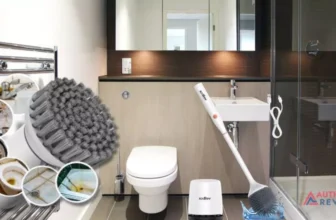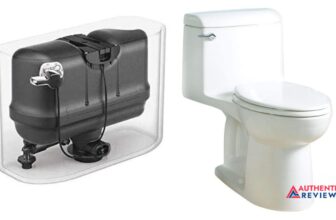The Best Way to Clean Tile Shower (Expert Tips)
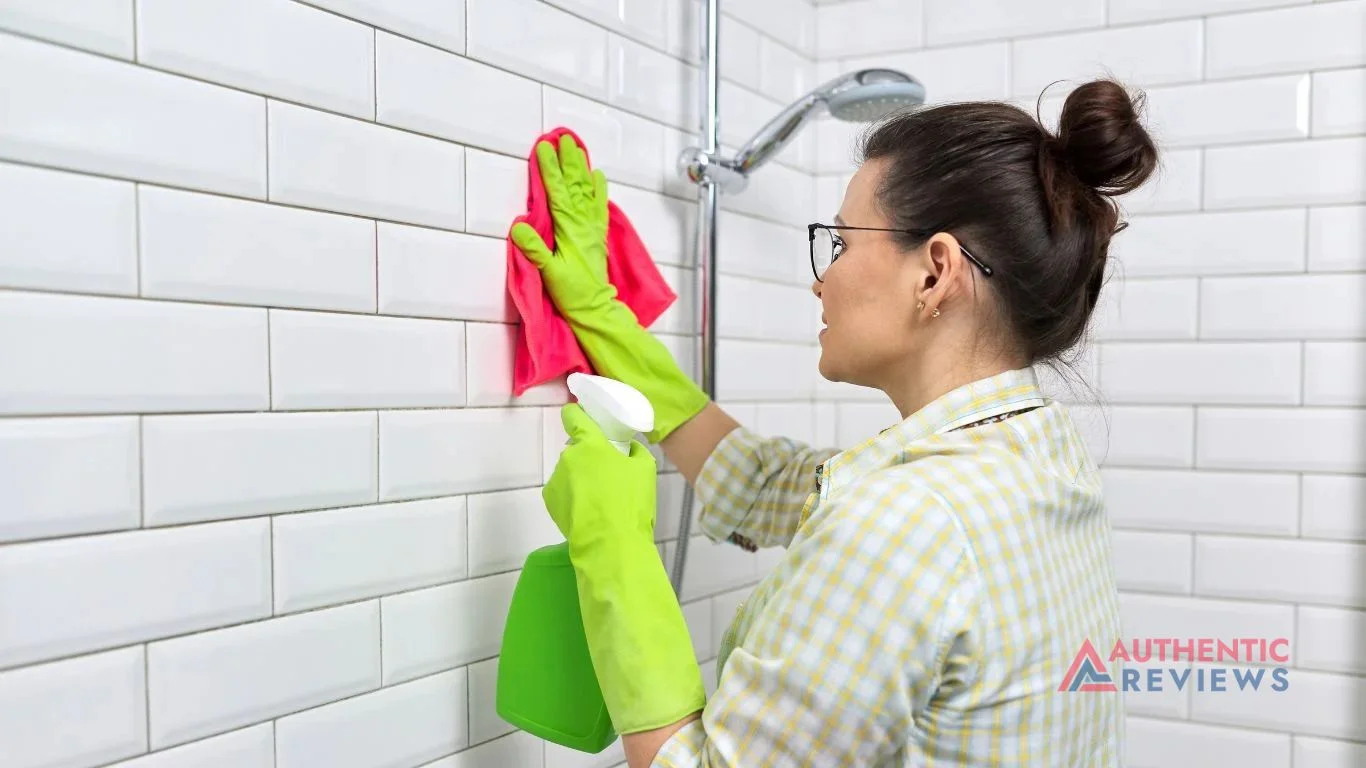
Your tile shower is a place of peace and relaxation. A place where you can unwind and let the warm water soothe your aching muscles. But what happens when your serene sanctuary turns into a grimy and moldy mess? It’s time for a good deep clean. The best way to clean tile shower is using an approach that’s both effective and efficient. Let’s dive into the details and get your shower back to its former glory.
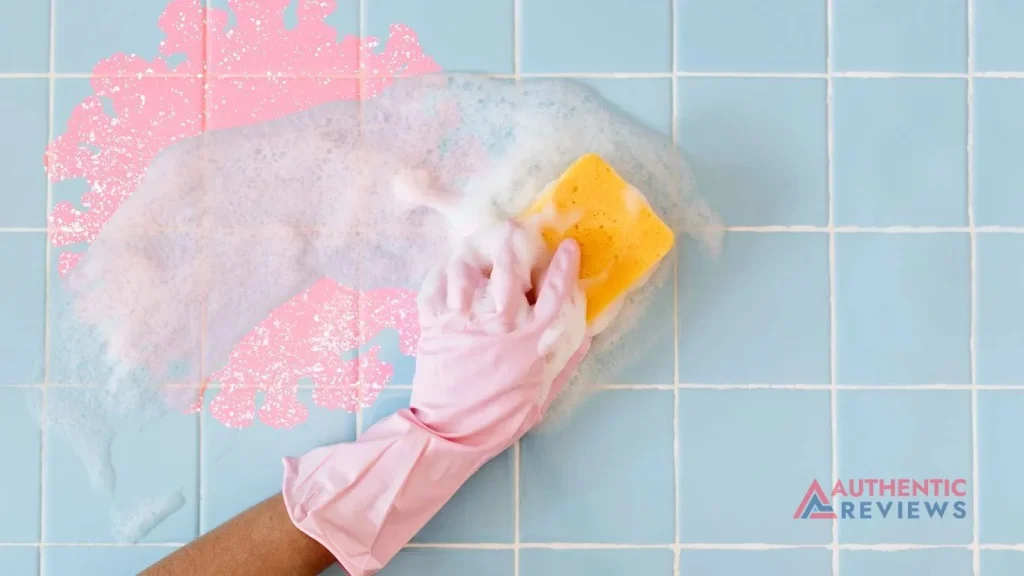
Understanding Your Shower Tiles:
Before cleaning, you must know what type of tiles you have in your shower.
Types of shower tiles
Different types of shower tiles require specific cleaning methods. Ceramic, glass, and fiberglass or acrylic are the most common types of shower tiles.
Ceramic tiles are made from clay and coated with a glaze, making them resistant to stains and moisture. These tiles are easy to clean but can still accumulate soap scum and mildew in the grout lines.
Glass tiles are non-porous and require minimal maintenance. However, they can become dull over time due to calcium deposits from hard water. Fiberglass or acrylic tiles are lightweight and affordable but can be easily scratched. They also tend to retain dirt and grime, making cleaning difficult.
Preparing your Tiles for Cleaning
Before you begin cleaning, it’s important to prepare your tiles properly. This will ensure that the cleaning solutions are more effective in removing dirt and grime.
Pre-treatment with a water-vinegar solution
A water vinegar solution is one of the most effective ways to prep your shower tiles. This will help loosen any buildup on the tiles and make them easier to clean. Vinegar acidity helps dissolve stubborn soap scum and hard water stains. The ratio of water to vinegar should be 2:1.
To make the solution, mix two parts of water with one part of plain white vinegar in a spray bottle. Shake well to combine.
Using a scrub brush or sponge, apply the solution onto the shower tiles and let it sit for about 10 minutes. This will allow the solution to penetrate and loosen any buildup.
Pre-scrubbing to remove soap scum
Pre-scrubbing is necessary before using any cleaning solution for shower doors and tiles that have accumulated a lot of soap scum. This will help remove the initial layer of buildup and make it easier for the cleaning solutions to work effectively.
Use a damp scrub brush, sponge, and a small dish soap to pre-scrub. Scrub the affected areas in a circular motion until the soap scum breaks down. Rinse with water afterward.
5 Methods To Clean Shower Tiles
There are various methods that you can use to clean your shower tiles. Each method is effective, and some may work better for certain tiles.
Hydrogen peroxide method
Using hydrogen peroxide is best way to clean shower tile, especially if there is mildew present. Hydrogen peroxide has strong antibacterial and anti-fungal properties, effectively killing mold and mildew. This method is also safe for most tiles, including ceramic and glass.
Here are steps to follow when using hydrogen peroxide for cleaning bathroom tile:
- Dilute the hydrogen peroxide with water according to the recommended ratio of 3 parts water to 1 part hydrogen peroxide.
- Spray the solution and let it sit for a few minutes.
- Use a sponge to work the solution into the grout lines and areas with built-up grime or mold.
- Rinse the tiles thoroughly with water before wiping them with a cloth.
The safety measures to remember while using hydrogen peroxide include wearing gloves and eye protection. This is to prevent any skin or eye irritation from the solution.
Vinegar method
Vinegar is a natural and inexpensive cleaner used for various household cleaning tasks. It is also an effective cleaner for shower tiles, as it can dissolve soap scum, hard water stains, and even mild mold.
To use vinegar for cleaning tile shower, follow these steps:
Mix equal parts of white vinegar and water in a spray bottle. This solution can be used on all types of tiles.
- Put on protective gear and spray the solution onto the tiles. Let it sit for 10-15 minutes.
- Scrub the tiles with a sponge or brush to loosen any grime or build-up. For tougher stains, let the solution sit for longer.
- Rinse the tiles thoroughly with water to remove any residue.
- Wipe the tiles dry with a clean cloth.
- You can use undiluted vinegar for tougher stains and let it sit longer before scrubbing.
Baking soda paste method
Baking soda is a gentle yet effective shower tile cleaner that can be used to clean tiles without causing any damage. When mixed with water, baking soda creates a paste that is great for removing tough stains on shower tiles.
It is also safe to use on all types of tiles.
To make a baking soda paste, follow these steps:
- Mix equal parts of baking soda and water in a bowl to create a thick paste.
- Apply the paste on the tiles and let it sit for 5-10 minutes.
- Use a scrub brush or sponge to work the paste into areas with tough stains.
- Before it dries, rinse the tiles with warm water and wipe dry with a clean cloth.
- For tougher stains, let the paste sit for longer before scrubbing.
Dawn blue liquid dish soap and vinegar method
Another effective method for cleaning shower tiles is mixing dawn blue liquid dish soap and plain white vinegar. Dawn soap is known for its grease-fighting abilities, making it great for removing build-up on tiles. When combined with vinegar, it creates a powerful cleaning solution.
To use this method, follow these steps:
- Mix equal parts of dawn blue liquid dish soap and white vinegar in a spray bottle.
- Spray the solution on the tiles you are cleaning and wait 10-15 minutes.
- Use a scrub brush or sponge to clean the tiles, focusing on any areas with tough stains or mildew.
- You can also add a bit of baking soda to the mixture for extra cleaning power.
- Rinse the tiles with water and wipe dry.
Bicarbonate of soda and white vinegar method
Combining bicarbonate of soda and white vinegar creates a best grout cleaners that effectively removes stubborn grime and mold on shower tiles.
Here’s how to use this method:
- Mix equal parts of bicarbonate of soda and white vinegar in a bowl.
- Apply the mixture onto the tiles and let it sit for 5-10 minutes.
- Use a scrub brush to work the paste into any stained areas.
- Rinse the tiles with water and dry them with a clean cloth.
Overall, these methods offer effective ways to clean shower tiles without causing damage. By regularly cleaning your shower tiles using these methods, you can maintain a clean and hygienic bathroom.
Checkout: Top 5 Best Toilet Brushes in 2025
Post-Cleaning Maintenance
After successfully tile shower cleaning, maintain their cleanliness and prevent build-up of scum and mold. Regular maintenance will keep your shower looking sparkling clean and prolong the lifespan of your tiles.
Here are some ways for post-cleaning maintenance:
Squeegee your tiles after every use
After showering, use a squeegee to remove excess water from your tiles. This will prevent water spots and mineral deposits from forming on your tiles.
Dry your shower
After removing the excess water with a squeegee, use a towel to dry off any remaining moisture in your shower. This will help prevent mold and mildew growth.
Use a daily shower cleaner
Invest in a daily shower cleaner regularly to keep your tiles clean and prevent the build-up of soap scum and hard water stains.
Keep your shower well-ventilated
Proper ventilation is crucial for preventing mold growth. Open a window or turn on the exhaust fan after every shower to allow moisture to escape.
Avoid using harsh chemicals
While cleaning your shower tiles, avoid using harsh chemicals such as bleach or ammonia. These can damage your tiles and harm your health.
Follow these maintenance tips to keep your shower tiles looking clean and new for years.
More About: Top 7 Best Freestanding Tub For Tall Person
Safety Measures to Follow While Cleaning Shower Tiles
Protective gear
When cleaning your shower tiles, it is important to protect yourself by wearing gloves, goggles, and a mask. This will prevent contact with harsh chemicals and potentially harm your eyes and lungs.
Safely handle cleaning agents
Be sure to read the instructions on all cleaning products before use carefully. Follow the recommended dilution ratios and avoid mixing different cleaning agents, which can create dangerous fumes. Always handle cleaning agents cautiously and keep them out of reach of children and pets.
By following these safety measures, you can ensure a safe and effective cleaning process for your shower tiles.
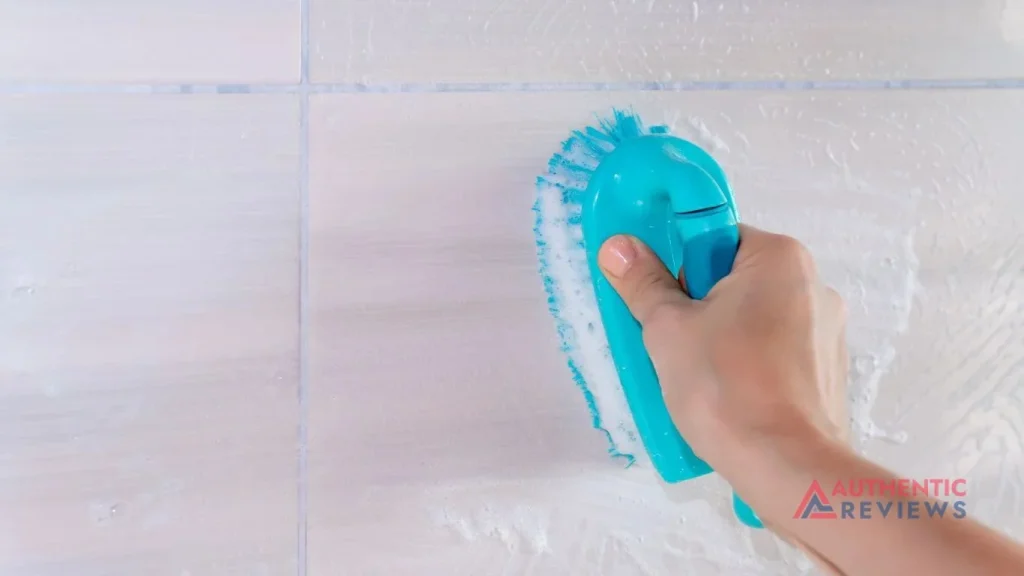
Read More: Best Electric Toilet Brush
Frequently Asked Questions
You can use a few methods to keep your shower tiles shiny. One simple way is to regularly wipe down your tiles with a mixture of equal parts water and distilled white vinegar. This will help prevent soap scum and hard water buildup, which can make your tiles look dull.
Cleaning your shower tiles without scrubbing can be done using baking soda and hydrogen peroxide. Simply mix the two ingredients to form a paste, apply it to your shower tiles, and let it sit for 10-15 minutes before wiping it clean with a damp cloth. The bubbling action of the mixture will help lift dirt and grime off the tiles without the need for scrubbing.
Avoid using harsh chemicals or abrasive cleaners that can damage the surface of your tiles. Instead, use gentle solutions such as dish soap, baking soda, or vinegar. You can also try using a steam cleaner to sanitize your tile shower effectively.
Remove any loose debris with a broom or vacuum to clean a walk-in tiled shower. Then, use a gentle cleaner and a non-abrasive sponge to wipe down the walls and floor of your shower. Be sure to rinse thoroughly with water afterward. For tougher stains or grout, you may need to use a small brush or toothbrush to scrub the area gently.
Ceramic tiles are relatively easy to clean and maintain. Start by regularly wiping down your tiles with a mild cleanser or mixture of vinegar and water. Make a paste using baking soda and water for tougher stains and apply it directly onto the stain.
Conclusion
Combining natural and store-bought products is the best way to clean tile shower. Natural products like vinegar and baking soda effectively remove soap scum and grime, while store-bought solutions can help disinfect and whiten the tiles.
However, always test any new product on a small, inconspicuous shower area before using it on the entire surface. This will ensure that it does not damage or discolor the tiles. Regular maintenance and cleaning will keep your shower looking pristine.



